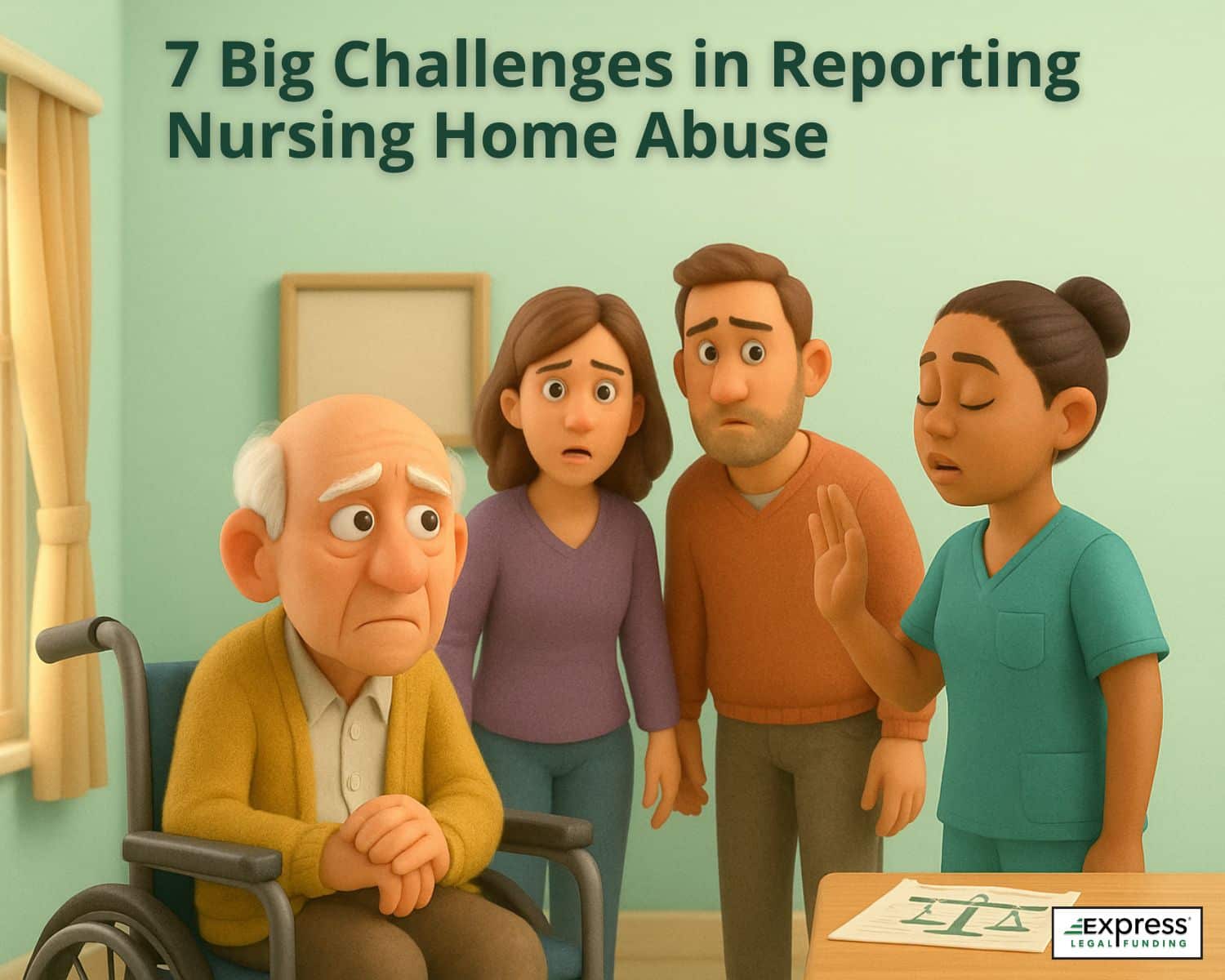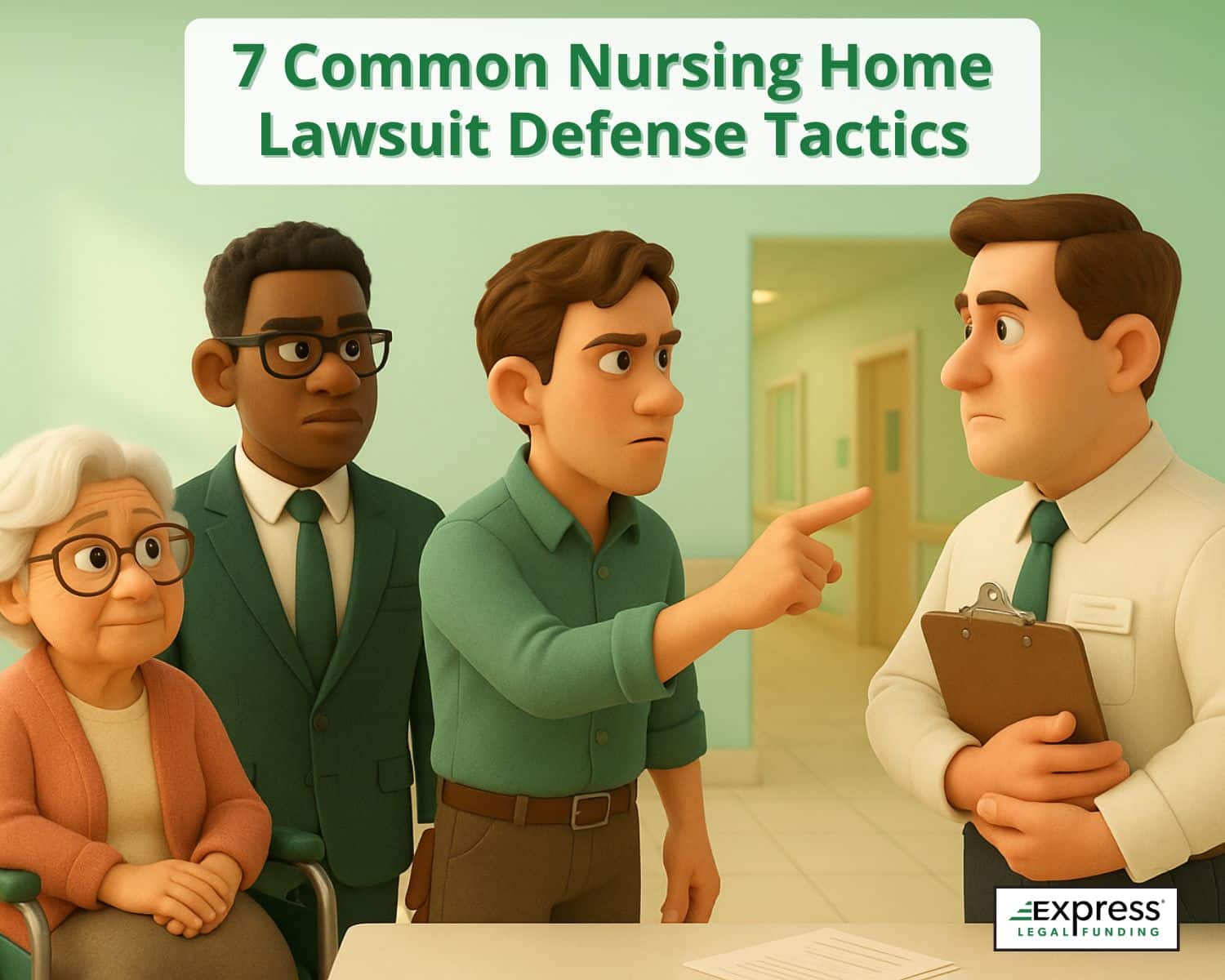
Nursing homes are meant to be safe places where elderly residents receive respectful, compassionate care. Sadly, thousands of residents each year suffer from abuse or neglect by the very people responsible for their well-being. Families trust these facilities to protect their loved ones, but not all nursing homes live up to that responsibility.
Nursing home abuse can take many forms—physical injuries, emotional harm, financial exploitation, or even sexual abuse. These incidents often go unreported, putting other residents at risk.
📢 Reporting nursing home abuse is a critical step in protecting vulnerable individuals and holding negligent facilities accountable.
This guide walks you through the process of how to report abuse, including what evidence to gather, who to contact, and how federal and state requirements affect how complaints are handled.
How to Report Nursing Home Abuse
To report nursing home abuse, begin by collecting evidence. This can include clear photos, medical records, and statements from witnesses. Next, file a complaint with a state or federal agency, such as Adult Protective Services (APS), a long-term care ombudsman, or the Centers for Medicare & Medicaid Services (CMS).
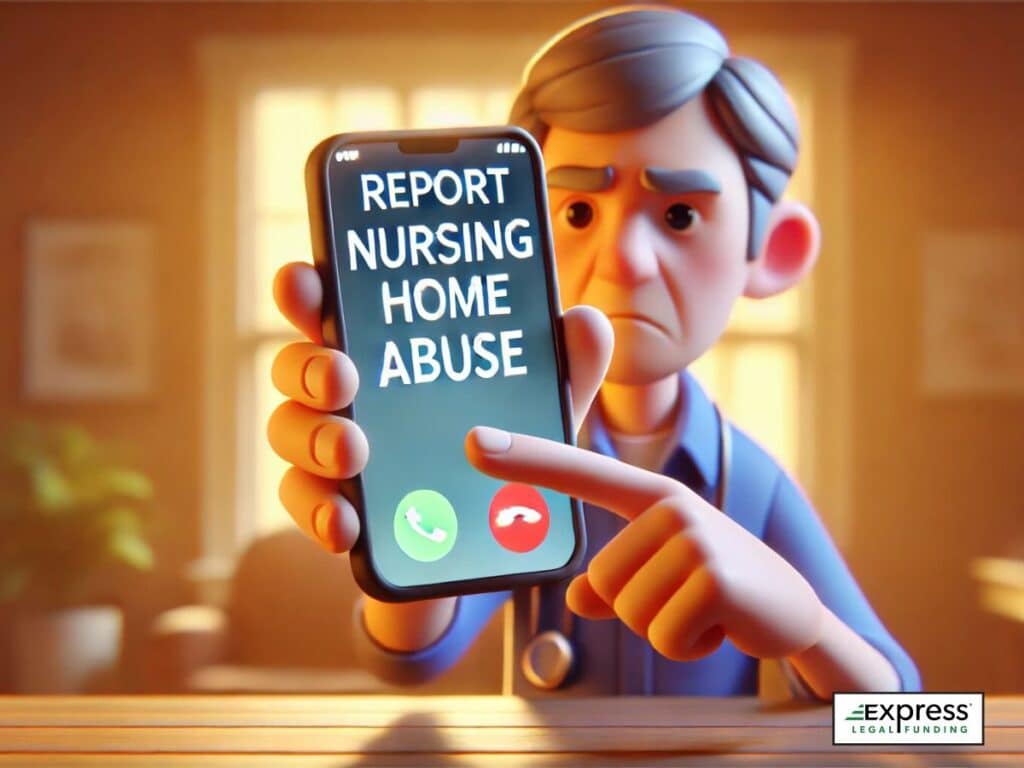
If someone is in immediate danger, call local law enforcement right away. In most states, you can report abuse anonymously, which helps protect the person making the report.
Who is Responsible for Reporting Nursing Home Abuse?
Recognizing and reporting nursing home abuse is a crucial step in protecting elderly residents from harm. Various individuals, including medical professionals, family members, and legal representatives, play a role in ensuring that abuse is identified and addressed.
Understanding who is responsible for reporting and the legal obligations surrounding abuse cases can help prevent mistreatment and hold negligent parties accountable.
Relevant read: 7 Nursing Home Lawsuit Defense Tactics (How to Beat Them)
Mandatory Reporters

Certain professionals are legally required to report suspected abuse in nursing homes. These include:
- Healthcare workers such as nurses, doctors, and caregivers. These individuals are often the first to notice signs of abuse, such as unexplained bruises, malnutrition, or sudden behavioral changes in residents.
- Social workers and case managers. Their role includes assessing the well-being of nursing home residents, making them key advocates in recognizing and reporting mistreatment.
- Law enforcement officers. In cases where abuse rises to a criminal level, law enforcement is responsible for taking immediate action and ensuring the safety of affected individuals.
- Long-term care ombudsmen. These professionals serve as advocates for nursing home residents and are trained to handle abuse complaints and facilitate investigations.
- Legal professionals handling elder care cases. Attorneys specializing in elder law may encounter cases of financial exploitation or neglect and are required to take action when they suspect wrongdoing.
Voluntary Reporters

Anyone who suspects abuse can report it, even if they are not legally required to do so. This includes:
- Family members, friends, and visitors who notice signs of nursing home neglect or mistreatment. Loved ones play a crucial role in identifying changes in a resident’s behavior, physical health, or living conditions that may indicate abuse.
- Other residents who witness abuse in the facility. Some cases involve staff mistreating multiple residents, and those living in the same environment can provide valuable testimony.
- Concerned community members who suspect wrongdoing. Even individuals who do not have direct connections to the facility may report abuse if they become aware of troubling conditions through interactions or media reports.
Anonymous Reporting of Nursing Home Abuse
Most states allow individuals to report abuse anonymously to protect whistleblowers. This encourages people to come forward without fear of retaliation. Some facilities may have internal reporting mechanisms, but external reporting options ensure that complaints reach the appropriate authorities for investigation.
However, providing contact information may help agencies follow up and investigate the case more thoroughly. Anonymous reports are still taken seriously, but additional details or verification may be needed to initiate a nursing home abuse investigation.
Step-by-Step Guide to Reporting Nursing Home Abuse
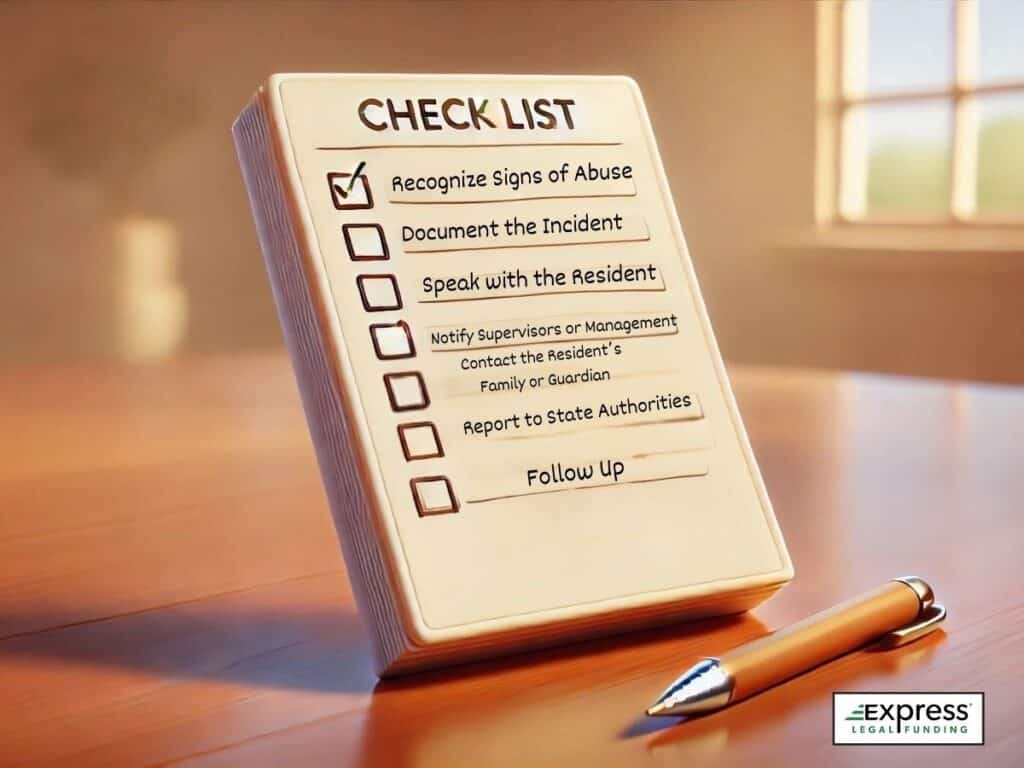
Step 1: Document the Nursing Home Abuse
Before filing a complaint about nursing home abuse, it is crucial to gather as much evidence as possible. Thorough documentation strengthens the case and increases the likelihood of prompt action by authorities.
- Gather Evidence: Take photos of injuries, unsafe living conditions, or visible signs of neglect. Ensure that photos are clear, well-lit, and time-stamped if possible. Obtain medical records that show unexplained injuries, dehydration, or malnutrition, as these can indicate serious neglect or mistreatment. Collect witness statements from staff, residents, or visitors who observed the incident or have knowledge of prior abuse. Written or recorded statements add credibility to the complaint and may help establish patterns of mistreatment.
- Record Key Details: Note the date, time, and location of the incident to provide an accurate timeline. Document the names of individuals involved, including the resident, alleged abuser, facility staff, and any potential witnesses. If abuse has occurred multiple times, keep a record of previous signs of mistreatment, including changes in the resident’s demeanor, weight loss, or worsening health conditions. The more detailed and organized the report, the easier it will be for investigators to verify claims.
- Preserve Physical Evidence: Keep any damaged clothing, medical devices, or financial records that may serve as proof of abuse. Items such as torn bedding, broken assistive devices, or soiled clothing can indicate neglect or rough handling. Avoid tampering with or discarding potential evidence, as doing so could weaken the case. Make copies of all documents, including medical reports and financial statements, to prevent loss or destruction. Properly preserving evidence helps ensure authorities have what they need to carry out a thorough nursing home abuse investigation.

Step 2: File a Complaint with the Appropriate Agency
Methods of Filing
- Online Filing: Many states have online complaint portals that expedite response times. These portals provide an efficient way to submit reports, upload supporting evidence, and track the status of a complaint. Some online systems allow users to receive automated updates and confirmations, ensuring that their report has been received and is being processed.
- Phone Reporting: Most agencies have 24/7 hotlines dedicated to handling abuse complaints. Calling a hotline allows for immediate communication with an intake specialist who can provide guidance on the next steps. Phone reporting is especially useful in urgent cases where a quick response is necessary to prevent further harm to a resident.
- In-Person Filing: Some states require notarized statements for formal investigations. This process may involve meeting with a representative at an official office, where additional documentation may be requested. While in-person filing can take longer, it ensures that the report is reviewed thoroughly and that all necessary paperwork is properly completed.

Information to Include in the Complaint
- Your full name and contact details (if not reporting anonymously). Providing your name and contact information allows investigators to follow up for further details and clarifications. If you prefer to remain anonymous, ensure that your complaint includes enough information to support an investigation without direct contact.
- The nursing home’s name, address, and licensing number. This information helps authorities identify the facility in question and verify its operational status. If you are unsure of the licensing number, it may be available on the facility’s official website or through a state health department database.
- A detailed description of the abuse or neglect incident, including all gathered evidence. Be specific about what occurred, when it happened, and who was involved. Include all relevant evidence, such as photographs, witness statements, medical records, and any previous complaints filed against the facility. The more comprehensive the report, the easier it will be for investigators to assess the situation and take appropriate action.
Where to Report Nursing Home Abuse?
You can report nursing home abuse to federal, state, and local agencies such as Adult Protective Services, your state’s long-term care ombudsman, and the Centers for Medicare & Medicaid Services. In cases of immediate danger or criminal activity, contact local law enforcement right away.
Federal, State, and Local Agencies for Reporting Nursing Home Abuse: Contact Information and Roles
| Agency | Contact Information | Role |
|---|---|---|
| Eldercare Locator Hotline | 1-800-677-1116 | Nationwide resource for elder abuse support |
| Adult Protective Services (APS) | Varies by state | Handles abuse cases and directs reports |
| Long-Term Care Ombudsman Program | Varies by state | Advocates for residents’ rights |
| Centers for Medicare & Medicaid Services (CMS) | 1-800-MEDICARE | Investigates complaints in federally funded facilities |
| Local Law Enforcement | 911 or non-emergency number | Immediate action for criminal abuse cases |
🛡️ On Medicaid and anticipating a personal injury settlement? Learn how to protect your benefits in our FAQ: Do Personal Injury Settlements Affect Medicaid?
Step 3: Follow Up on the Nursing Home Abuse Complaint
Once a complaint is filed, the agency assigns an investigator to assess the case. The investigator’s role is to gather further details, verify evidence, and determine whether corrective actions or legal measures are necessary.
- What Happens Next? Interviews may be conducted with staff, residents, and witnesses. Investigators may also review medical or forensic evaluations to assess physical injuries or neglect. Some cases may require coordination with multiple agencies to determine if additional violations have occurred.
- Investigation Timeline: Federal guidelines require state survey agencies to initiate investigations promptly, but specific timelines vary by state and the nature of the complaint. Some states, like New York and California, expedite urgent cases to ensure swift intervention, often beginning within 2-5 days. The length of the investigation may vary based on the complexity of the complaint and the facility’s responsiveness.
- How to Track the Status: Request a case number and contact a case manager for updates. Keep a log of all communications with investigators to maintain a clear record of the process. If no response is received within the expected timeframe, escalate the complaint to higher authorities for further action.
What to Do If No Action is Taken?

If an agency fails to act on your report of nursing home abuse, there are additional steps you can take. These include:
- Escalating the Complaint: Contact state regulatory bodies, such as the Attorney General’s Office or CMS. Consider seeking help from advocacy groups or media outlets to increase pressure and bring public attention to the issue.
- Hiring a Nursing Home Abuse Attorney: A lawyer can help file a civil lawsuit or seek compensation for the victim. In extreme cases, an attorney can also file for emergency protective orders to remove the resident from an unsafe environment.
- Filing a Federal Complaint: If state agencies fail to respond, reports can be filed with CMS or the Department of Justice (DOJ). Federal agencies have oversight authority and can impose penalties or revoke facility licenses if necessary.
Thinking about hiring a lawyer? Start with these 🗂️ 15 Must-Ask Questions for Your Free Lawyer Consultation.
State-Specific Reporting Agencies and Exceptions for Nursing Home Abuse
Some states have unique elder abuse reporting procedures, agency responsibilities, or verification requirements that may impact how nursing home abuse complaints are filed and processed. Understanding these differences ensures your report reaches the correct authority and receives the appropriate response.
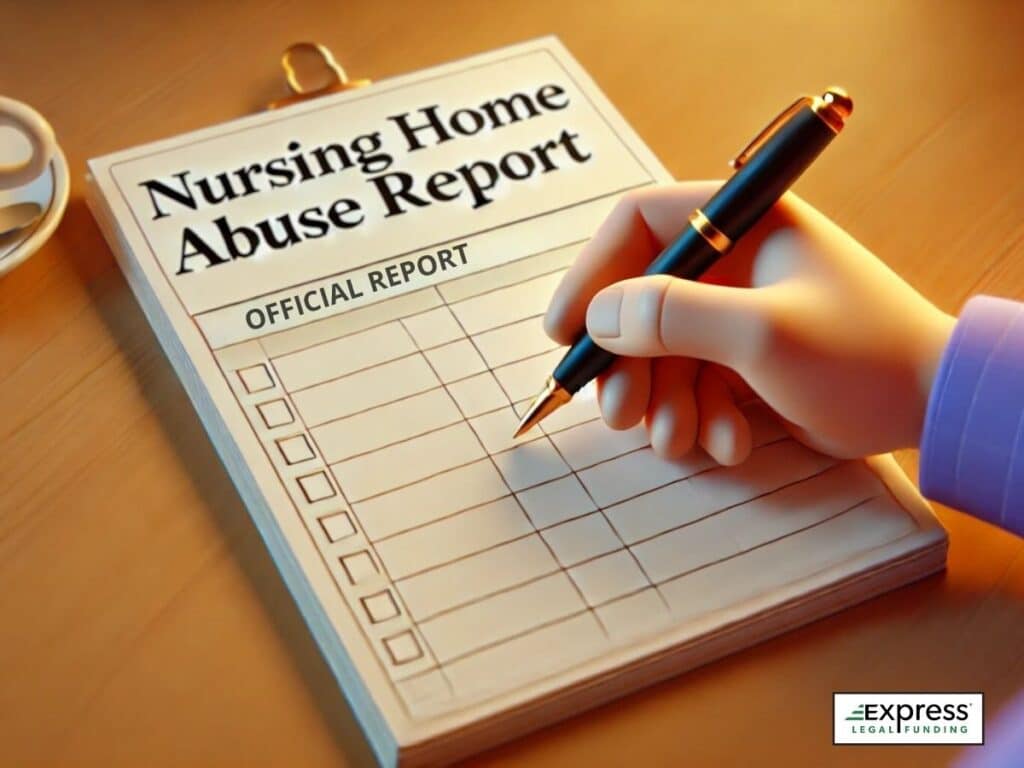
California: Multiple Agencies for Physical and Financial Abuse
- California Department of Public Health (CDPH) investigates:
- Physical abuse, neglect, and violations of health and safety codes in licensed nursing homes.
- Complaints involving resident care, staff conduct, and facility compliance.
- Adult Protective Services (APS) handles:
- Reports of abuse, neglect, or exploitation involving elders and dependent adults.
- Situations inside and outside of licensed care facilities.
- The Department of Consumer Affairs (DCA) and affiliated boards may become involved in cases where:
- Licensed professionals (e.g., fiduciaries and administrators) are responsible for abuse or misconduct.
- Financial exploitation involves professionals regulated by the state.
- Financial abuse and physical abuse may require separate reports to different agencies for proper investigation and enforcement.
Relevant Statute: California Welfare and Institutions Code §§ 15630–15632
Florida: Strict Self-Reporting and State Oversight
- The Florida Agency for Health Care Administration (AHCA) investigates:
- Complaints of abuse, neglect, and care violations in nursing homes and assisted living facilities.
- Facilities are required by law to self-report adverse incidents within 24 hours.
- The Florida Department of Children and Families (DCF), through Adult Protective Services, manages:
- Reports of elder abuse in private homes or non-facility settings.
- Coordination with law enforcement for serious cases.
- Nursing homes that fail to self-report abuse or injuries can face:
- Fines, license suspension, or permanent revocation.
- Fines, license suspension, or permanent revocation.
- Fraud or financial abuse involving Medicaid billing may be investigated by:
- The Florida Medicaid Fraud Control Unit (MFCU) within the Attorney General’s Office.
Relevant Statute: Florida Statutes § 415.1034
Illinois: Local and State Oversight for Nursing Home Abuse
Illinois has a multi-agency structure in place for reporting and investigating nursing home abuse. Different departments handle oversight, depending on the type and location of the incident.
- Illinois Department of Public Health (IDPH) investigates:
- Complaints involving abuse, neglect, or substandard care in licensed nursing homes statewide.
Violations of health, safety, and staffing standards under state and federal law.
- Complaints involving abuse, neglect, or substandard care in licensed nursing homes statewide.
- County Adult Protective Services (APS) handles:
- Reports of elder abuse, neglect, or exploitation within local nursing homes and the community.
Coordination with law enforcement and other entities when criminal conduct or severe harm is involved.
- Reports of elder abuse, neglect, or exploitation within local nursing homes and the community.
- Office of the Illinois Attorney General may become involved in:
- Cases of Medicaid fraud, financial exploitation, or criminal negligence involving licensed facilities.
- Legal enforcement actions against abusive staff or facilities that violate elder protection laws.
- Reporting Notes:
- Complaints can be submitted by anyone, including family, friends, residents, or medical staff.
- Illinois maintains a 24/7 elder abuse hotline: 📞 1-800-252-4343
- Mandatory reporters in Illinois include healthcare professionals, social workers, and facility staff.
Relevant Statute: Illinois Adult Protective Services Act, 320 ILCS 20
New York: State Agency Oversight and Reporting Channels
- Multiple agencies may be involved in nursing home abuse investigations, depending on the type of misconduct.
- The New York State Department of Health (NYSDOH) handles:
- Complaints involving physical abuse, neglect, mistreatment, or unsafe facility conditions.
- Investigations into violations of care standards in licensed nursing homes.
- The Medicaid Fraud Control Unit (MFCU), under the New York Attorney General’s Office, investigates:
- Fraudulent Medicaid billing by facilities or providers.
- Financial exploitation of nursing home residents.
- Criminal acts related to systemic neglect or abuse.
- Cases of financial abuse and Medicaid fraud are handled separately from physical neglect or care complaints to ensure proper legal enforcement.
- Local law enforcement and Adult Protective Services (APS) may also be involved in cases where criminal activity or non-institutional abuse is suspected.
Relevant Statute: New York Social Services Law § 473-b
Pennsylvania: Coordinated Oversight for Nursing Home Abuse and Neglect
- The Pennsylvania Department of Health oversees:
- Inspections and investigations of nursing homes licensed by the state.
- Complaints involving physical abuse, neglect, and care violations at long-term care facilities.
- Facilities found in violation may face citations, fines, or license suspension.
- The Pennsylvania Department of Aging’s Long-Term Care Ombudsman Program helps:
- Advocate for residents’ rights and assist with abuse-related complaints.
- Family members and residents can report directly to local ombudsmen.
- Adult Protective Services (APS), administered through the Department of Human Services, investigates:
- Abuse, neglect, exploitation, or abandonment of adults aged 60 and older.
- Reports can be submitted by anyone, including family, friends, or staff.
- Financial exploitation or Medicaid fraud may be handled by:
- The Pennsylvania Attorney General’s Medicaid Fraud Control Section.
- Law enforcement may also be involved if criminal activity is suspected.
- Reports can be made via the Elder Abuse Hotline: 📞 1-800-490-8505 (24/7, anonymous reporting available)
Relevant Statute: Pennsylvania Older Adults Protective Services Act, 35 P.S. §§ 10225.101–10225.5102
Texas: Dedicated State Units for Elder Abuse Reports
- The Texas Health and Human Services Commission (HHSC) oversees:
- Regulation and investigation of nursing home abuse, neglect, and care violations.
- Complaints against licensed long-term care facilities.
- Adult Protective Services (APS), under the Texas Department of Family and Protective Services (DFPS), investigates:
- Abuse, neglect, or financial exploitation of elderly individuals, including in-home or community-based settings.
- Abuse, neglect, or financial exploitation of elderly individuals, including in-home or community-based settings.
- The Texas Attorney General’s Office or local law enforcement may handle:
- Criminal abuse cases or serious harm involving nursing home staff or administrators.
- Financial exploitation cases may also be directed to consumer protection divisions or financial regulatory agencies, depending on the nature of the abuse.
Relevant Statute: Texas Human Resources Code § 48.051
Restrictions on Who Can File Complaints:
Some states, such as Indiana and South Carolina, require non-professional reports about nursing home abuse to be channeled through specific entities (e.g., ombudsman programs or local APS agencies).

Additional Verification Requirements:
- Michigan and Wisconsin: While both states allow the public to report suspected nursing home abuse without notarization, some formal legal filings or facility grievances may require signed or written statements. These administrative steps can occasionally slow urgent responses but are not legal barriers to reporting abuse or starting an investigation.
Legal Protections for Nursing Home Abuse Whistleblowers and Reporters
Individuals who report nursing home abuse are protected under both federal and state laws to ensure they can come forward without fear of retaliation.
These legal safeguards help encourage timely reporting by shielding whistleblowers—including staff, family members, and concerned citizens—from threats, harassment, demotion, or termination as a result of their actions.

Federal Nursing Home Laws and Regulations:
- Elder Justice Act: a federal law enacted in 2010 as part of the Affordable Care Act. It’s the first comprehensive national legislation dedicated to preventing, detecting, and responding to elder abuse, neglect, and exploitation in the United States. The Act includes anti-retaliation protections, stating that facilities may not retaliate against employees who, in good faith, report suspected crimes.
- Older Americans Act (OAA): A federal law enacted in 1965 to provide a range of services and protections for Americans aged 60 and older, helping them maintain independence, dignity, and quality of life as they age. It forms the foundation of aging services across the United States. The OAA explicitly protects ombudsman program representatives from interference, retaliation, or penalties for investigating or reporting complaints made by or on behalf of nursing home residents.
State-Level Whistleblower Protections:
- Many states have anti-retaliation laws that protect employees who report abuse. These laws prevent nursing home staff from being fired, demoted, or harassed for coming forward.
- Some states also provide anonymity protections for family members who file complaints. This ensures that those reporting abuse do not face intimidation or legal repercussions from the facility in question.
Final Thoughts on Reporting Nursing Home Abuse
Reporting nursing home abuse is a crucial step in protecting vulnerable residents and ensuring accountability. It not only helps the individual victim but also contributes to broader systemic changes that improve care standards across facilities.
When abuse is reported, authorities can take corrective actions, impose penalties on negligent institutions, and implement stronger regulations to prevent future incidents.

Protecting elderly and vulnerable individuals from mistreatment should be a collective responsibility.
Family members, caregivers, and the general public all play a role in ensuring that nursing homes provide safe and dignified care. If you suspect abuse, do not hesitate to report it—taking action could save lives and improve conditions for all residents.
For immediate assistance, refer to the contact information provided for major hotlines and reporting agencies. Your report could be the key to ending abuse and holding responsible parties accountable.
👉 Relevant read: 7 Big Challenges in Reporting Nursing Home Abuse
FAQs: Reporting Nursing Home Abuse
What qualifies as nursing home abuse?
Nursing home abuse includes physical harm, emotional distress, neglect, financial exploitation, and sexual abuse inflicted on a resident by a caregiver or staff member. Common signs include unexplained injuries, malnutrition, fearfulness, sudden behavioral changes, and missing personal funds or valuables.

Who is legally required to report nursing home abuse?
Mandatory reporters include healthcare professionals (nurses, doctors, caregivers), social workers, law enforcement officers, long-term care ombudsmen, and elder law attorneys. These individuals are legally obligated to report any suspected abuse they encounter.
Can I report nursing home abuse anonymously?
Yes. Most states allow anonymous reporting to protect whistleblowers. While providing your contact information can help investigators follow up more effectively, you are not required to disclose your identity for the report to be taken seriously.
How do I file a complaint against a nursing home?
You can file a complaint through several methods:
- Online via your state’s health department portal
- By phone using 24/7 hotlines like Adult Protective Services (APS)
- In-person at a state health office or through a long-term care ombudsman
Include detailed information about the abuse, the facility’s name and address, and any evidence you’ve collected.
Where do I report nursing home abuse?
You can report nursing home abuse to the following agencies:
- Eldercare Locator Hotline: 1-800-677-1116
- Adult Protective Services (APS): State-specific numbers
- Long-Term Care Ombudsman: Varies by state
- Centers for Medicare & Medicaid Services (CMS): 1-800-MEDICARE
- Local police if abuse is criminal or life-threatening
What happens after I file a report for nursing home abuse?
Once a report is filed, an investigator is assigned to review the complaint. They may conduct interviews, gather evidence, inspect the facility, and determine whether corrective actions or legal consequences are necessary. Investigations usually begin within 2 to 10 days, depending on the severity of the case.
What if no action is taken after I report nursing home abuse?
If your report of nursing home abuse is ignored or unresolved, you can escalate the case to:
- Your state’s Attorney General
- The Centers for Medicare & Medicaid Services (CMS)
- The U.S. Department of Justice (DOJ)
- You may also consider hiring a nursing home abuse attorney to file a civil lawsuit or obtain emergency protective orders for the resident.
Can family members report nursing home abuse?
Yes. Family members, friends, and even other residents can and should report suspected nursing home abuse. While they may not always be mandatory reporters, their observations can be critical in triggering investigations and protecting the residents.
Are whistleblowers protected when reporting nursing home abuse?
Yes. Federal laws like the Elder Justice Act and the Older Americans Act protect whistleblowers from retaliation. Many states also have their own anti-retaliation and anonymity protections to safeguard reporters from being demoted, fired, or harassed.
How Express Legal Funding Helps Nursing Home Abuse Victims and Their Families
Pursuing justice after discovering nursing home abuse can be emotionally and financially overwhelming. At Express Legal Funding, we understand the toll these cases take on families—especially when you’re facing mounting medical expenses, relocation costs, or lost income while advocating for your loved one’s well-being.
That’s why we offer pre-settlement funding to victims of nursing home abuse and neglect. If you’ve filed a civil lawsuit against a negligent facility or abusive caregiver, our team can provide you with fast, risk-free financial support to help cover essential living expenses while your case moves through the legal system.
Unlike traditional loans, our legal funding is non-recourse, which means you only repay if your case successfully settles or wins in court.
✅ Read our guide: Guaranteed Pre-settlement Funding: Eligibility & Approval
We work directly with your attorney to review the strength of your case and offer funding options tailored to your needs—so you can focus on protecting your loved one without the added burden of financial stress.
Need Help Now? Let Express Legal Funding Be Your Financial Lifeline.
If you or a family member is pursuing a nursing home abuse lawsuit and need cash now, don’t wait.
Apply today for a fast and affordable lawsuit cash advance.
Your pursuit of justice shouldn’t come with financial hardship—let Express Legal Funding provide the cash relief you need with a fast, risk-free pre-settlement advance.
🟢 Apply Now Online or Call Us Today at (888) 232-9223


